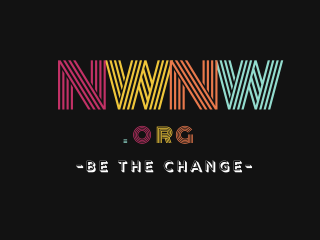Mass Shelter & Housing Project: Zoning Code Update
For more information on the zoning code updates attend the Open House or Land Use Presentation
Wednesday, August 31, 5:00 – 7:00 pm at the First Baptist Church, 909 SW 11th Ave.
Monday, August 22, 7:00 pm at the Citywide Land Use meeting at 1900 SW 4th, 2500B
To read more go to the Bureau of Planning & Sustainability website. The proposed draft will be available there on Monday.
In 2015, 4,311 people in Portland were placed in emergency shelters with another 1,887 people unable to find housing, even in emergency shelters. Of these 1,887 people without shelter, 33 percent were newly homeless.
These code proposals aim to help increase shelter availability for vulnerable community members and are the result of the Portland City Council’s direction to the Bureau of Planning and Sustainability to “simplify regulations, remove regulatory obstacles and expedite processes for land use reviews and permits for affordable housing projects, mass shelters and short-term housing” (Resolution 37196, passed on March 9, 2016).
There are a variety of shelter types proposed that can increase access to housing for people in need. The Portland Zoning Code addresses shelters in the Short Term Housing and Mass Shelter chapter (chapter 33.285). The terms “short term housing,” “mass shelters,” and “mass shelter beds” are used interchangeably and have minor differences generally related to the design of the sleeping areas and the duration of residence.
Mass shelters are defined as structures that provide communal sleeping areas within a larger room, while short-term housing structures are defined as providing one or more individual sleeping rooms (similar to a dorm) on a short term basis.
The proposed amendments have been separated out into a regulatory improvement package. The focus is on regulations for mass shelters, short-term housing and the current land use processes for reviewing affordable housing projects in design and historic overlay zones. The proposed amendments will reduce some barriers of entry for providers and institutions who wish to establish shelter facilities, while still ensuring that there is neighborhood review in many cases. The amendments are summarized in the table on the reverse page.
Items and the Proposed Changes
Mass Shelters
- Increase the number of mass shelter beds allowed in zones where shelters are already allowed.
- Reduce the spacing requirements between mass shelters in zones where they are already allowed.
- Allow small mass shelters (up to 15 beds) in multi-dwelling zones if part of an existing institution on site.
- Remove parking requirements if the shelter is allowed by right and is part of an existing institution.
- Allow some mass shelters (in conjunction with existing buildings/uses) to go through a Type II Conditional use process instead of a Type III process which requires a hearing.
- Adjust Conditional Use approval criteria to focus on livability issues rather than transportation/ infrastructure requirements.
- Allow a mass shelter in an EG zone through a Conditional Use process.
Short-term Housing
- Allow some short-term housing (in conjunction with existing buildings/uses) to go through a Type II Conditional use process instead of a Type III process which requires a hearing.
- Remove parking requirements if the short-term housing is allowed by right and is part of an existing institution.
Transitional Housing in conjunction with a Religious Institution
- Expand the number of transitional households that a religious institution can host from one to four and expand the time limit for a transitional household from 60 to 180days.
Affordable Housing Land Use Review
- Increase flexibility by providing a Type IIx option (instead of Type III) for Design and Historic reviews for affordable housing projects.
These concepts are currently being drafted into the city’s zoning code for public review and opportunities for providing testimony.
The schedule for the project is:
- August 8th: Release of Proposed Draft
- September 13th: Planning & Sustainability Commission Hearing
- October: Release of Recommended Draft
- November: City Council Hearing
Project Contacts:
Leslie Lum & Phil Nameny

